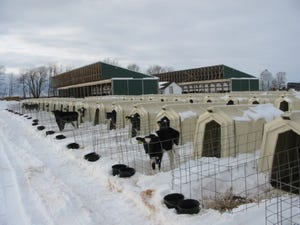Senate tackles biotech labeling
Stabenow hopes to have bipartisan Senate solution on "GMO" labeling by end of the year.

For the first time in 10 years, the Senate Agriculture Committee held a hearing on agriculture biotechnology featuring testimony and expertise from top agency officials on the safety of genetic engineering as well as from members about what needs to be included in a viable labeling option.
The House has been busy in evaluating the technology advances in agriculture and has held three previous hearings over the past year on the topic featuring different stakeholders as well as government officials. Earlier this year, the full House passed legislation which would create a uniform national voluntary food labeling standard as well as set up the U.S. Department of Agriculture to oversee a certified GMO-free label similar to what it does for organics.
During the Senate hearing, top officials from the Food and Drug Administration, Animal and Plant Health Inspection Service and Environmental Protection Agency all confirmed multiple times the safety of all the 117 approved genetically engineered crops in the marketplace today as well as the regulatory review process which all new products must go through.
"We have great confidence in the safety of GE crops that have been approved under the U.S. regulatory system," testified Michael Gregoire, associate administrator of APHIS.
William Jordan, deputy director of the Office of Pesticide Programs at EPA, said EPA relies on the best available science, extensive data and independent experts when reviewing the safety of biotechnology traits for the environment.
The director of the Center for Food Safety and Applied Nutrition at FDA Dr. Susan Mayne, testified: "We are confident that foods from genetically engineered sources in the U.S. marketplace today are as safe as their conventional counterparts."
Legislative response
For months Sen. John Hoeven (R., N.D.) has been discussed as a potential sponsor for the House’s legislative response for a national labeling standard. However, a Democratic co-sponsor has not surfaced for the House bill. During the hearing Wednesday, ranking member Sen. Debbie Stabenow (D., Mich.) voiced support for producing a bipartisan legislative solution before the end of the year, offering strong support that the Senate may try to move its own bipartisan bill.
Unless Congress acts this fall, Vermont is set to become the first state in the country to institute its own mandatory GMO labeling law next July, and other states have passed or are considering their own labeling mandates.
Stabenow said biotechnology has proven to be safe and beneficial and will play a major role in helping to solve the dual global challenges of climate change and global food security, but also recognized the desire by a growing number of American consumers to know more about the food they eat.
She said she plans to work on a bipartisan bill that offers a solution to the problem of a 50-state patchwork of regulations; a national system of disclosure and transparency for consumers who wish to know more information about their food and an approach that does not stigmatize biotechnology.
Agricultural groups have been supportive of a national bill ahead of Vermont’s bill going into effect. The Grocery Manufacturers Assn. said they were pleased to hear of Stabenow’s commitment along with chairman Pat Roberts and Hoeven to pass a bill by the end of the year and said they looked forward to working with them to get a bill adopted and signed into law.
National Corn Growers Assn. trade policy and biotechnology action team chair John Linder, a farmer from Edison, Ohio, said, “Congress, and only Congress, can now prevent a costly and confusing patchwork of state labeling laws from taking effect next year. The Senate must act now to avoid the negative consequences inaction will surely bring for consumers and farmers across the country.”
Randy Gordon, president of the National Grain and Feed Assn. said they continue to believe a national legislative fix can be done in a way “that supports the rights of buyers and consumers to exercise choice and preferences when purchasing agricultural commodities and products, while supporting all safe agricultural cropping systems.”
About the Author(s)
You May Also Like


.png?width=300&auto=webp&quality=80&disable=upscale)


